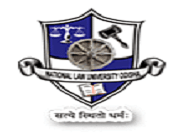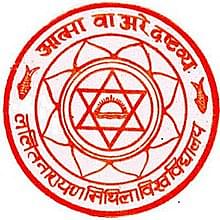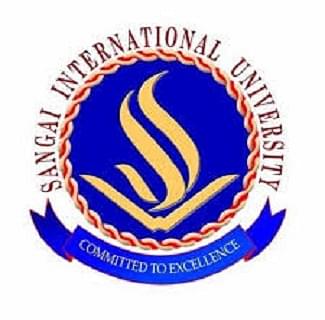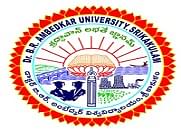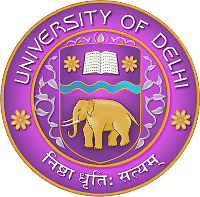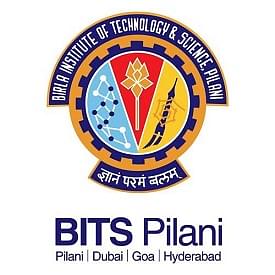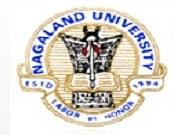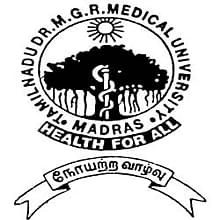Introduction
about Ph. d in Tourism Management
PhD in Tourism Management from best college is an advanced academic program designed for individuals aiming to excel in the fields of tourism research, academia, or high-level industry leadership. This doctoral degree focuses on in-depth study and research of tourism systems, policies, management practices, and their impacts on economies, environments, and societies. The program equips students with the theoretical knowledge, research skills, and practical insights necessary to address complex issues in the tourism sector.
Program Structure and
Curriculum
ü Core Courses: These courses cover advanced topics in tourism management, including
tourism economics, sustainable tourism, strategic tourism planning, and tourism
policy and governance.
ü Research Methodology: Comprehensive training in both qualitative
and quantitative research methods. Courses may include statistical analysis,
research design, ethnographic methods, and data analysis specific to tourism
studies.
ü Specializations: Depending on the institution, students can specialize in areas such as
eco-tourism, cultural tourism, tourism marketing, destination management, or
hospitality management.
ü Dissertation: The central component of the PhD program is the dissertation, an
original piece of research that contributes new knowledge to the field. This
involves identifying a research question, conducting extensive research, and
presenting findings.
ü Teaching Experience: Many programs include opportunities for
doctoral candidates to teach undergraduate or master's level courses, enhancing
their academic and instructional skills.
Career Prospects
Graduates with a PhD in
Tourism Management can pursue various career paths:
ü Academic Positions: Many graduates become professors, lecturers,
or researchers at universities and colleges, contributing to academic knowledge
and teaching future tourism professionals.
ü Research and Consultancy: Graduates may work in research institutions,
think tanks, or consultancy firms, focusing on developing new theories,
strategies, and practices in tourism management.
ü Industry Leadership: Some graduates move into executive roles
within tourism organizations, government agencies, or non-profits, using their
expertise to shape tourism policies and practices.
ü Policy and Planning: Opportunities also exist in government and
international organizations where experts in tourism management contribute to
policy development, strategic planning, and sustainable tourism initiatives.
Benefits of a PhD in Tourism
Management
ü Expertise: Graduates acquire deep, specialized knowledge that distinguishes them
in the competitive field of tourism management.
ü Research Contributions: PhD holders contribute significantly to the
body of knowledge in tourism, influencing both academic thought and practical
applications.
ü Leadership Skills: The program hones leadership and strategic
thinking skills essential for high-level positions in academia and industry.
ü Networking: The program provides extensive networking opportunities with industry
leaders, academics, and peers, fostering professional connections and
collaborations.
What is
admission process for Ph. D in Tourism Management ?
The admission process 2024 for PhD in Tourism Management involves several steps to ensure that applicants are well-prepared for the rigors of doctoral study. Here is a detailed overview of the typical process:
1. Research and Choose
Programs
Identify Programs: Begin by researching universities and
institutions that offer a PhD in Tourism Management. Look for programs that
align with your research interests, career goals, and preferred locations.
2. Meet Eligibility Criteria
Educational Background:
Master’s Degree: Most programs require a master’s degree in Tourism Management,
Hospitality Management, Business Administration, or a related field.
Bachelor’s Degree: Some programs might consider exceptional
candidates with a bachelor’s degree and significant professional experience.
Academic Performance:
A strong academic record is
essential, typically requiring a minimum GPA of 3.0 on a 4.0 scale.
Professional Experience:
Relevant professional
experience in the tourism or hospitality industry is often preferred and
sometimes required.
3. Prepare Application
Materials
Application Form: Complete the online application form available on the university’s
website.
Transcripts: Submit official transcripts from all post-secondary institutions
attended.
Curriculum Vitae (CV): Provide a detailed CV that includes your
academic background, professional experience, research activities, and
publications (if any).
Statement of Purpose (SOP): Write a compelling SOP that outlines your
research interests, career goals, and reasons for pursuing a PhD in Tourism
Management. Explain how your background has prepared you for the program and
how the program will help you achieve your objectives.
Research Proposal: Some programs require a research proposal
outlining your intended research topic, objectives, methodology, and
significance.
Letters of Recommendation: Obtain 2-3 letters of recommendation from
academic advisors, professors, or professional supervisors who can attest to
your academic abilities, research potential, and professional experience.
Test Scores: Submit scores for standardized tests such as the GRE or GMAT, if
required by the program. Additionally, non-native English speakers may need to
provide proof of English proficiency through TOEFL or IELTS scores.
4. Application Submission
Application Fee: Pay the application fee, which varies by institution.
Submit Application: Ensure all components of your application
are submitted before the deadline. Many universities use online application
portals.
5. Interview Process
Interview: If shortlisted, you may be invited for an interview. This can be
conducted in person, over the phone, or via video conferencing. The interview
assesses your motivation, research interests, and suitability for the program.
6. Admission Decision
Review Process: The admissions committee reviews applications, considering academic
qualifications, research potential, professional experience, and alignment with
the program’s strengths and faculty expertise.
Notification: You will be notified of the admission decision. Successful candidates
will receive an offer letter outlining the terms of admission, including
funding details if applicable.
7. Acceptance and Enrollment
Accept Offer: If you receive an offer, confirm your acceptance by the deadline
specified in the offer letter.
Enroll: Complete any additional administrative steps required for enrollment,
such as submitting a deposit, registering for courses, and attending
orientation sessions.
Additional Considerations
Funding: Explore funding options such as scholarships, grants, teaching
assistantships, or research assistantships. Many PhD programs offer financial
support to cover tuition and living expenses.
Visa and Immigration: International students will need to apply
for a student visa. Follow the university’s guidelines and provide the
necessary documentation for the visa application.
What is
eligibility process for Ph. D in Tourism Management ?
The eligibility process for PhD in Tourism Management involves meeting several academic, professional,
and language criteria set by the admitting institution. Here are the common
eligibility requirements:
1. Academic Qualifications
Master’s Degree:
Most programs require
applicants to hold a master’s degree in Tourism Management, Hospitality
Management, Business Administration, or a closely related field.
Some programs may accept
applicants with a master’s degree in other disciplines if they have sufficient
coursework or professional experience in tourism or hospitality management.
Bachelor’s Degree:
While a master's degree is
typically required, some exceptional candidates with only a bachelor's degree
and extensive professional experience in tourism management may be considered.
2. Academic Performance
GPA:
A strong academic record is
essential. Many programs require a minimum GPA, often around 3.0 on a 4.0
scale. However, higher GPAs may be preferred, especially for competitive
programs.
3. Professional Experience
Industry Experience:
Relevant professional
experience in the tourism or hospitality industry can be a significant
advantage. Some programs prefer or require applicants to have several years of
work experience in tourism management, hospitality management, or related
fields.
Leadership or managerial
experience in the industry is particularly valued.
4. Research Experience
Research Background:
Previous research
experience, demonstrated through a master’s thesis, research projects,
publications, or conference presentations, is highly valued.
Applicants should show
evidence of their ability to conduct independent research.
5. Standardized Test Scores
GRE or GMAT:
Some programs require scores
from standardized tests such as the Graduate Record Examination (GRE) or the
Graduate Management Admission Test (GMAT).
Specific score requirements
vary by institution, but competitive scores can strengthen an application.
6. Language Proficiency
English Proficiency:
For non-native English
speakers, proof of English proficiency is typically required. This can be
demonstrated through standardized tests such as the TOEFL or IELTS.
Minimum score requirements
vary, but generally, a TOEFL score of around 90-100 or an IELTS score of
6.5-7.0 is expected.
7. Application Materials
Statement of Purpose (SOP):
A well-written SOP outlining
your research interests, career goals, and reasons for pursuing a PhD in
Tourism Management is crucial.
This document should explain
how your background and experiences have prepared you for the program and how
the program will help you achieve your objectives.
Research Proposal:
Some programs require a
detailed research proposal that outlines your intended research topic,
objectives, methodology, and significance. This demonstrates your ability to
plan and propose independent research.
Letters of Recommendation:
Typically, 2-3 letters of
recommendation from academic advisors, professors, or professional supervisors
who can attest to your academic abilities, research potential, and professional
experience.
Curriculum Vitae (CV):
A detailed CV highlighting
your academic background, professional experience, research activities,
publications, and any other relevant accomplishments.
Transcripts:
Official transcripts from
all post-secondary institutions attended are required to verify your academic
record.
8. Interview
Interview:
Some programs may require an
interview as part of the selection process. This can be conducted in person,
over the phone, or via video conferencing.
The interview assesses your
motivation, research interests, and suitability for the program.
What is
syllabus for Ph. D in Tourism Management ?
The syllabus for PhD in Tourism Management is designed to provide a comprehensive understanding of advanced concepts in tourism, research methodologies, and specialized areas within the field. The exact curriculum can vary between institutions, but it generally includes the following components:
1. Core Courses
Advanced Tourism Theory and Practice:
In-depth exploration of
tourism theories, models, and practices.
Topics may include tourism
systems, tourism behavior, and tourism impact analysis.
Sustainable Tourism:
Principles and practices of
sustainable tourism development.
Focus on environmental,
economic, and social sustainability in tourism.
Tourism Policy and Planning:
Analysis of tourism
policies, planning processes, and governance.
Case studies of tourism
policy implementation at local, national, and international levels.
Tourism Economics and Development:
Economic principles applied
to tourism.
Topics include tourism
demand and supply, economic impact assessment, and tourism development
strategies.
2. Research Methodology
Quantitative Research Methods:
Statistical techniques and
data analysis methods.
Courses may cover regression
analysis, structural equation modeling, and multivariate analysis.
Qualitative Research Methods:
Techniques for conducting
qualitative research, including interviews, focus groups, and content analysis.
Emphasis on ethnographic
methods, case study research, and grounded theory.
Advanced Research Design:
Designing robust research
studies.
Topics include hypothesis
testing, sampling techniques, and research ethics.
3. Specialization Courses
Depending on the student's
research interests, they may choose elective courses or specializations such
as:
Ecotourism and Nature-based Tourism:
Study of ecotourism
principles, practices, and impacts.
Focus on conservation,
community involvement, and sustainable management of natural resources.
Cultural and Heritage Tourism:
Examination of cultural and
heritage tourism.
Topics include heritage
preservation, cultural resource management, and interpretation.
Tourism Marketing and Consumer Behavior:
Advanced marketing
strategies for the tourism industry.
Study of tourist consumer
behavior, branding, and digital marketing.
Destination Management and Marketing:
Strategies for effective
destination management and marketing.
Topics include destination
branding, crisis management, and stakeholder engagement.
4. Seminars and Workshops
Doctoral Seminars:
Regular seminars to discuss
current research, emerging trends, and theoretical advancements in tourism
management.
Guest lectures by industry
experts and academicians.
Workshops:
Practical workshops on
research tools, software (such as SPSS, NVivo), and techniques.
Workshops on academic
writing, publishing, and presenting research.
5. Teaching and Academic
Training
Teaching Practicum:
Opportunities to gain
teaching experience by assisting in undergraduate or master’s level courses.
Training in pedagogical
techniques and curriculum development.
6. Comprehensive
Examinations
Qualifying Exams:
Exams to assess the
student's comprehensive knowledge of tourism management theories, research
methodologies, and their chosen specialization.
Often taken after the
completion of coursework and before the dissertation phase.
7. Dissertation Research
Dissertation Proposal:
Development and defense of a
dissertation proposal outlining the intended research, objectives, methodology,
and significance.
Dissertation Research:
Conducting original research
under the guidance of a faculty advisor.
Regular progress reports and
meetings with the dissertation committee.
Dissertation Writing:
Writing the dissertation,
which includes an introduction, literature review, methodology, findings,
discussion, and conclusion.
Dissertation Defense:
Presenting and defending the
dissertation before a panel of experts.
8. Optional Internships or
Fieldwork
Industry Internship or Fieldwork:
Some programs may offer or
require an internship or fieldwork to gain practical experience and apply
research in a real-world setting.
Example Course Structure
Year 1:
Core Courses: Advanced
Tourism Theory and Practice, Sustainable Tourism, Tourism Policy and Planning.
Elective/Specialization
Courses.
Doctoral Seminars.
Year 2:
Core Courses: Tourism
Economics and Development, Research Methodology Courses.
Elective/Specialization
Courses.
Comprehensive Exams.
Dissertation Proposal
Development.
Year 3 and Beyond:
Dissertation Research and
Writing.
Teaching Practicum.
Regular Dissertation
Committee Meetings and Progress Reports.
Dissertation Defense.





